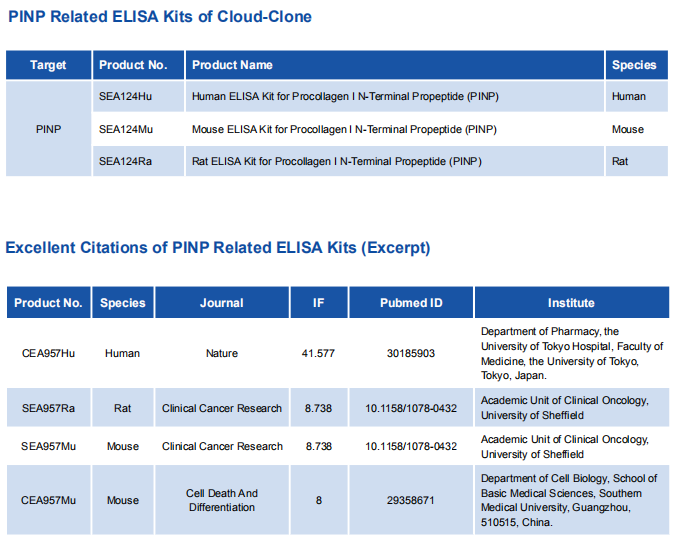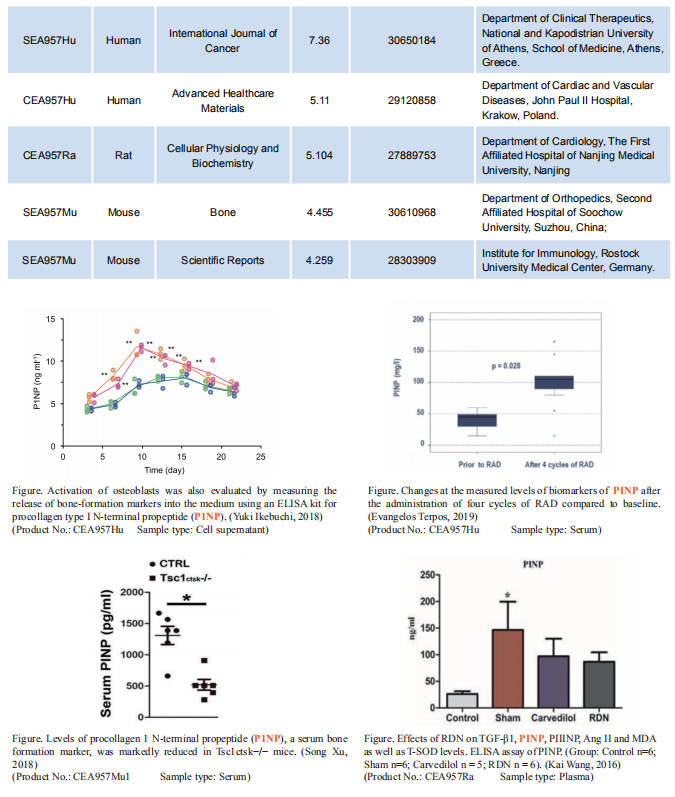Top-Ranked ELISA Kits (Procollagen I N-Terminal Propeptide PINP). Vol.7 (2019)

Skeletal type I collagen is the most abundant form of collagen in the human body, accounting for about 90% of bone mass. Type I collagen is mainly synthesized in bone tissue. The first synthesis is procollagen. There is an extended peptide at the N-terminal and C-terminal of the type I procollagen, which is called type I procollagen N-terminal propeptide (PINP). And type I procollagen C-terminal propeptide (PICP); when type I procollagen is secreted outside the cell by osteoblasts, the N-terminal and C-terminal prolonged peptides are cleaved by proteases, except for a small amount deposited in the bone matrix, a large number will enter the blood circulation and eventually be cleared by the liver metabolism. Therefore, under the influence of liver disease, detecting the content of PINP in the blood can accurately reflect the activity of osteoblasts, thereby reflecting the intensity of bone metabolism in the body, and guiding the diagnosis and treatment of diseases caused by abnormal bone metabolism. A large number of experimental data currently indicate that the reference standard for 30-year-old premenopausal women's PINP is 17.10 - 102.15 ug /L.


